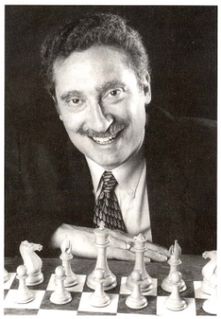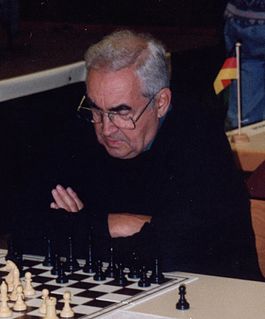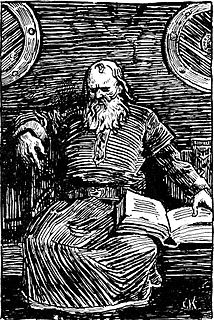A Quote by Bruce Pandolfini
Fischer was a master of clarity and a king of artful positioning. His opponents would see where he was going but were powerless to stop him
Related Quotes
When Grand Masters play, they see the logic of their opponent's moves. One's moves may be so powerful that the other may not be able to stop him, but the plan behind the moves will be clear. Not so with Fischer. His moves did not make sense - at least to all the rest of us they didn't. We were playing chess, Fischer was playing something else, call it what you will. Naturally, there would come a time when we finally would understand what those moves had been about. But by then it was too late. We were dead.
His master’s pain was his pain. And it hurt him more for his master to be sick than for him to be sick himself. When the house started burning down, that type of Negro would fight harder to put the master’s house out than the master himself would. But then you had another Negro out in the field. The house Negro was in the minority. The masses—the field Negroes were the masses. They were in the majority. When the master got sick, they prayed that he’d die. If his house caught on fire, they'd pray for a wind to come along and fan the breeze.
The opposition is indispensable. A good statesman, like any other sensible human being, always learns more from his opponents than from his fervent supporters. For his supporters will push him to disaster unless his opponents show him where the dangers are. So if he is wise he will often pray to be delivered from his friends, because they will ruin him. But though it hurts, he ought also to pray never to be left without opponents; for they keep him on the path of reason and good sense.
Some people reckoned up all King Harald's (King of Norway) great achievements, and said that nothing would be too difficult for him. But there were others who said that England would be very hard to conquer. It was very populous and the warriors who were known as the king's Housecarls were so valiant, that any one of them was worth two of the best in King Harald's army
Do you think you should warn him (the guard) that I'm going to kiss you?" He loved the flush that appeared on her face, and there was an intake of breath from the girls. "Aldron," she said clearing her throat,"if he agrees to become king, I'm going to let him kiss me. Please don't stop him." Aldron thought for a moment and sighed, holding up his hand. "Wait there and do not move," he ordered Finnikin, before calling out to one of the other guards who stood on the platform. "Ask Perri if he's allowed to touch her if he's agreed to be king.
Some would define a servant like this: 'A servant is one who finds out what his master wants him to do, and then he does it.' The human concept of a servant is that a servant goes to the master and says, 'Master, what do you want me to do?' The master tells him, and the servant goes off BY HIMSELF and does it. That is not the biblical concept of a servant of God. Being a servant of God is different from being a servant of a human master. A servant of a human master works FOR his master. God, however, works THROUGH His servants.
The life of a chess master is much more difficult than that of an artist - much more depressing. An artist knows that someday there'll be recognition and monetary reward, but for the chess master there is little public recognition and absolutely no hope of supporting himself by his endeavors. If Bobby Fischer came to me for advice, I certainly would not discourage him - as if anyone could - but I would try to make it positively clear that he will never have any money from chess, live a monk-like existence and know more rejection than any artist ever has, struggling to be known and accepted.
We, the Greens, should thank our former foreign minister Joschka Fischer for bringing something hideous and shameful to light - that Nazi ideas were fully adopted by white-collar workers in the Foreign Ministry. Joschka Fischer stood up to criticism that he would foul his own nest, and with his order to start the historical commission he made it clear that the ministry's pride in itself, as a haven of resistance to Hitler, was no longer acceptable.



































